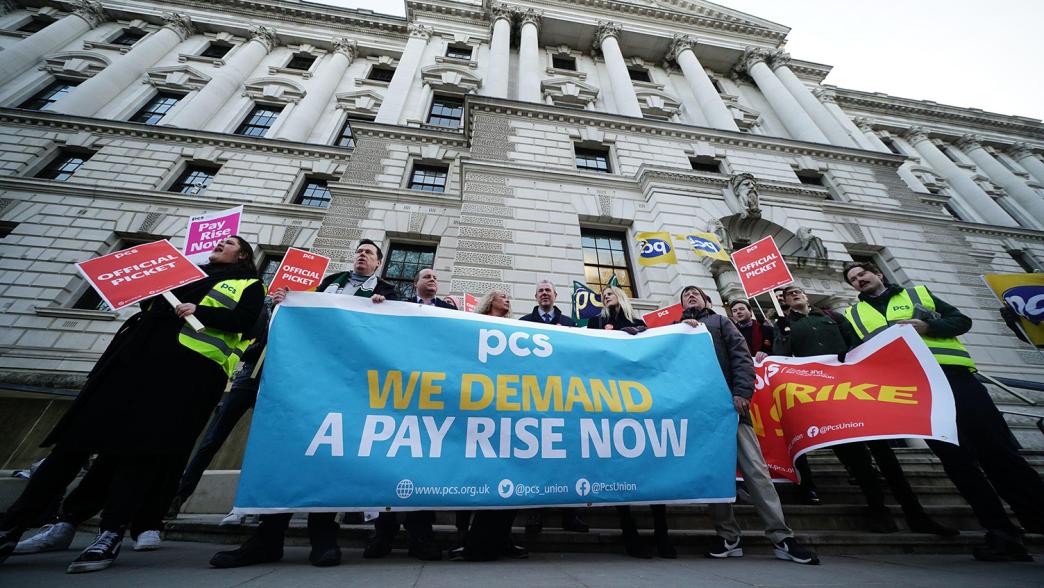Whitehall Monitor 2024: Foreword
Introducing the analysis in Whitehall Monitor 2024.

This is the 11th edition of Whitehall Monitor – our annual, data-based assessment of the UK civil service. This edition poses two questions, which give this year’s report its structure: How did the civil service change and perform in 2023? And how should it change this year and in the future?
Some of the immediate pressures facing the civil service eased in 2023. The political tumult of 2022, with its three prime ministers and record-breaking 67 cabinet appointments, gave way to relative stability. Prolonged industrial action over the winter of 2022–23, in which more than 100,000 civil servants went on strike across the country, was paused following an increased pay award – although the civil service still had plenty of challenges to contend with, including persistently high inflation, renewed strikes elsewhere in the public sector and conflict in Europe and the Middle East.
But its work was not defined by all-encompassing crises to the same extent as for most of the last decade, dominated as it was by the implementation of Brexit and the response to the pandemic.
In theory, then, 2023 had the makings of a year in which the civil service could have made serious progress in improving its own capabilities. Some such progress has been made. The government’s efforts to relocate civil servants out of London are moving apace and the benefits are beginning to be felt. The workforce continues to become more representative of the UK, with the proportion of senior officials who are female matching the economically active population for the first time. And the government’s digital skills, and those of its workforce, are improving.
But 2023 also laid bare deep-rooted and long-standing problems with the civil service that are undermining government effectiveness. Staff turnover fell from its immediate post-pandemic peak but remains too high and continues to harm institutional memory. Further real-terms pay cuts still hinder the civil service’s ability to attract and retain top talent, as do slow and onerous processes for recruiting from outside government. A worrying fall in staff morale has raised questions about how the institution is led. The failure to properly plan its workforce has been exposed by implausible forecast cuts to administration budgets, the prime minister’s U-turn to restore arbitrary targets for headcount cuts, and departments’ (costly) reliance on private sector consultancies and temporary workers.
These problems are not new. They are reminiscent of historic civil service reform plans from the likes of Francis Maude, John Fulton or even Richard Haldane. But they are undermining the UK government and they represent a decades-long failure to grasp the nettle on civil service reform. Unfortunately, 2023 was another year in which these issues went unresolved. Thankfully, support for Whitehall reform seems to be growing, slowly, and enjoys a degree of cross-party consensus – at least in recognising the problems.
As well as Lord Maude’s latest review of the civil service, last year also saw the former Cabinet Office minister Jeremy Quin set out his priorities for reform, and it is reported that Sue Gray, Keir Starmer’s recently appointed chief of staff, has been charged with developing Labour’s plans for Whitehall reform, should it win the election pencilled in for 2024.
In the context of that impending election, the prospect of a stable government – of whichever political make-up – with a full parliamentary term ahead of it, provides an opportunity for Whitehall reform that neither the civil service nor government can afford to miss. Civil service reform is unlikely to feature in the election campaign. But it is integral to any government’s ability to tackle the long-term challenges the UK faces – of burnt-out and backed-up public services, rising destitution, an ageing population, rapid technological change and a climate in crisis.
So, ministers and civil service leaders should be prepared, early into a new parliament, to face up to these problems and set in train more fundamental reforms to the civil service than have been attempted in decades. This year’s Whitehall Monitor sets out the Institute’s view on what those problems are, and what those reforms should include.
- Data document
- Whitehall Monitor 2024 data for publication (VND.OPENXMLFORMATS-OFFICEDOCUMENT.SPREADSHEETML.SHEET, 12.48 MB)
- Topic
- Civil service Public bodies
- Keywords
- Civil servants Civil service reform Machinery of government Diversity and inclusion Public sector Public spending Arm's-length bodies Infrastructure
- Political party
- Conservative
- Administration
- Sunak government
- Department
- Cabinet Office Number 10
- Public figures
- Rishi Sunak Oliver Dowden Simon Case
- Tracker
- Whitehall Monitor
- Publisher
- Institute for Government